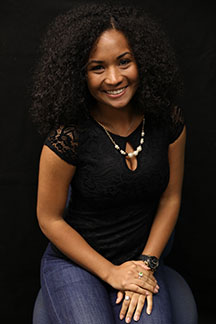Hulu is bringing Margaret Atwood’s “The Handmaid’s Tale” to the laptops, tablets and smartphones of any user with a Hulu account on Wednesday. The book and the soon-to-be TV show is a modern horror for women and democracy. Dystopian novels such as “The Handmaid’s Tale,” “1984″ and “Brave New World” shine a spotlight on society’s worst flaws. When we focus on this spotlight, we are awakened to the sides of human nature, in an attempt for the perfect society, try to extinguish the minorities and the weak. Dystopian novels and their TV shows remind of us of what can become of our racism, sexism, nativism and ignorance.
“Ignoring isn’t the same as ignorance, you have to work at it,” wrote Atwood in “The Handmaid’s Tale.”
“The Handmaid’s Tale” is a haunting look inside the totalitarian fundamentalist regime that, in the face of declining birth rates, enslaves women to be raped and subjected to bear children for the barren wives. The TV show will follow the character of Offred as she tries to escape this terrifying world and find her child. Hulu’s trailer shared a brief look inside “The Handmaid’s Tale,” leaving goosebumps and anticipation.
Novels such as “The Handmaid’s Tale” have been banned from the summer reading lists of school-age children. According to the American Library Association, “1984” and “Brave New World” are among the American literature that has been repeatedly banned or challenged since its publishing. In the Time’s “Top 10 Book Controversies,” “The Handmaid’s Tale” was banned by the Judson school superintendent after a parent complained about it being too sexually explicit and offensive to Christians.
Written in 1987, Atwood’s world will continue to be challenged and praised. Without novels and TV shows that cause uproar, we are closer to becoming the people in the novels that we love to hate or love to love. With more hate and less compassion, we are closer. With the phrases “alternative facts” and “fake news” spewing, we are closer. We grasp at these novels of dystopian societies as a literal road map or handbook to steer away from cultural doom. After the 2017 inauguration, Amazon book sales showed an increase in sales for George Orwell’s “1984″ and the current publisher of “1984,” Signet Classics, said that sales have increased 10,000 percent.
As a young woman myself, I will be watching the TV show despite my uneasiness. The hopelessness in the storyline is astounding, but compared to the passion of Atwood’s characters, I may be able to bear it. The rape is horrible, but it is a reality of many real-life young women. We must empathize — even with a TV show. Ignorance is known to be bliss, but it is also known to be dangerous.
“But who can remember pain, once it’s over?” wrote Atwood in “The Handmaid’s Tale.” “All that remains of it is a shadow, not in the mind even, in the flesh. Pain marks you, but too deep to see. Out of sight, out of mind.”
We can learn from dystopian societies. Novels and TV shows shape our culture, and we shape them in return. If we choose to do so, we can soak up the themes of these stories of society gone mad and recognize the signs in our own world. We can be frightened into peace and love. We must open our eyes. Watching “The Handmaid’s Tale” on TV is an excuse to binge on Hulu, but it also a chance to learn from a world we can only hope won’t be ours.






